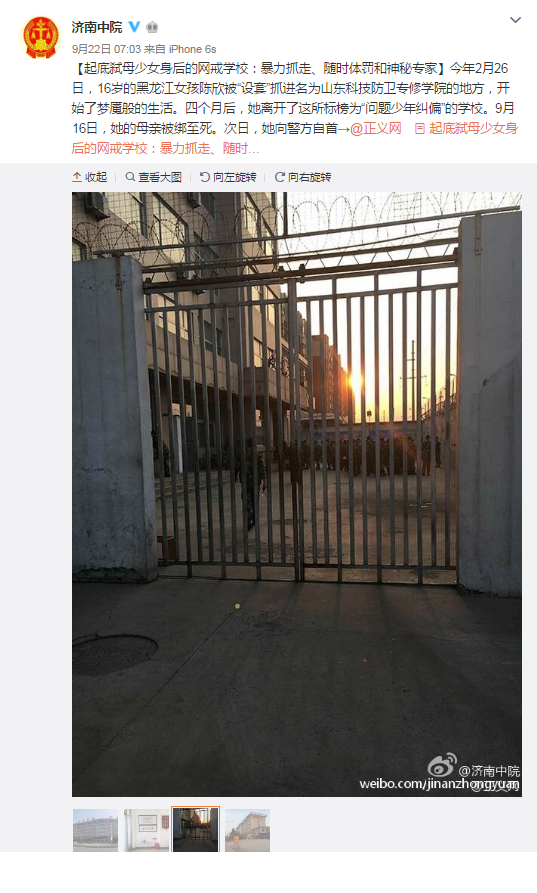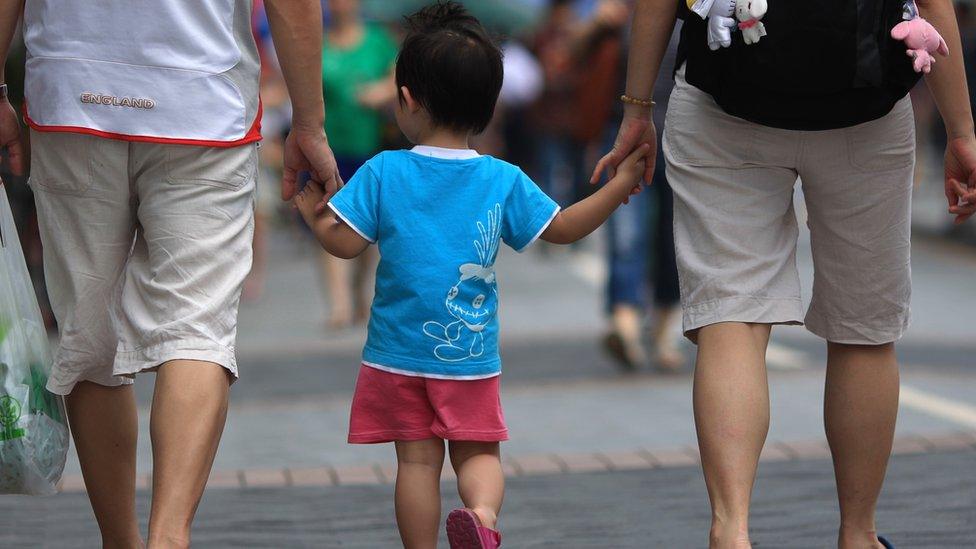China teen killing sparks internet boot camp debate
- Published

Internet addiction is said to be a growing problem in China
A murder case in China, in which a teenager reportedly tied up and killed her mother after being sent to an internet addiction treatment centre, has sparked shock across the country.
The teenager, from the northern province of Heilongjiang, had "tied the victim up in a chair until she died" on 16 September, local police say, without giving further details about the death.
The 16-year-old, identified in media reports by a psuedonym, Chen Xin, has handed herself in to the police.
Local media say Chen Xin had been sent to an academy in Shandong, more than 1,000 km (600 miles) from her home, that specialised in "treating addictions and rebellious youths" - and which had a particular reputation for treating internet addictions.
She claimed in an online blog that she had been bundled into a car by two men and taken to the academy against her will, where she was held for four months, news outlet The Paper reported.
She also alleged there were frequent student beatings at the centre, and students were forced to "eat in front of the toilet bowl" as a form of punishment, The Paper added.
Local education officials say they are now investigating the college. The college has denied any corporal punishment.

Photos of the centre have been widely shared on social media
The incident has sparked outrage online about China's youth treatment centres, and debate about how parents should raise their children.
The Paper said it had interviewed several former students at the college who alleged abuse.
Many said they were beaten for not following orders, with one saying they were beaten "black and blue" for being found with a cigarette.
Others said they were sometimes forbidden to sleep, and forced to stand until the early hours of the morning.
One student said her parents paid 30,000 RMB ($5,000; £3,500) to enroll her for a year and she lived "a life without dignity".
Several news outlets have since sought to enter the school or seek interviews, but have been refused, the state run People's Daily newspaper reported.
'Military-style discipline'
Internet boot camps became widely publicised in China in 2014, as there were reports of an increase in the number of young people suffering from insomnia and depression.
The camps involved "physical training and psychological counselling, as well as the prescription of drugs if doctors consider it necessary," the South China Morning Post, external (SCMP) reported.
Within the camps, students mainly take part in military drills, and "practical" work (such as chopping vegetables), to improve their "bad" physical shape.
However, people have criticised the "harsh treatment and military-style discipline enforced on teenagers" at some camps, the SCMP says.
'Tragedy'

The incident has sparked debate over the lack of support available to families
The allegations of abuse at the centre have provoked online outrage, with thousands of users expressing anger at Chen Xin's parents.
One user whose post was widely praised said: "Everyone knows that parents play a major role in their child's development. This environment acted as a catalyst towards two people undeserving of the title 'parents'."
Another social media user, whose comment received over 1,000 likes, said: "You do not treat your children... like animals".
However, some have expressed shock that Chen Xin killed her mother, with one saying: "I do not support matricide".
Meanwhile, media commentators have called the story a "tragedy" that highlights the lack of proper counselling and support available for families.
The Beijing Times warns parents to "wake up" to the risks of sending their children to such treatment centres.
"Do not send your children to such a 'cage'" it says. "Using violent means only further hurts a child."
A People's Daily commentator, 'Xiaojiang Suixiang', said: "Some parents are left helpless by internet-addicted children, and there is a lack of formal, professional psychological counselling in communities, which lead to 'wild routes'."